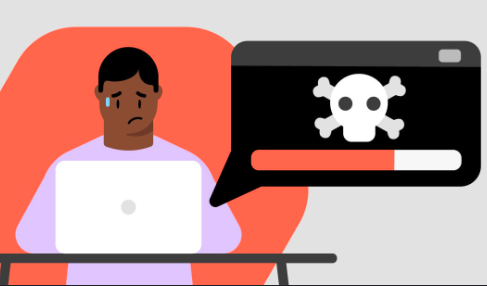Pirated software is a widespread issue in today’s digital landscape, impacting both consumers and developers. It refers to illegally copied or distributed software, usually obtained for free or at a significantly reduced cost. While it may seem like a quick way to access expensive programs, pirated software comes with serious risks and consequences that can affect users and businesses alike. This article delves into the dangers of pirated software, the consequences for users, and the legal alternatives available.

Risks of Using Pirated Software
Security Threats: A Gateway for Malware
One of the most significant risks of using pirated software is the security threat it poses. Many pirated programs are laced with malware, viruses, and spyware. Users unknowingly expose their devices and personal information to cybercriminals when they download and install these illegal copies. Malware can lead to data breaches, identity theft, and compromised banking details, causing severe financial and personal damage.
Lack of Updates: Missing Critical Patches
Pirated software typically doesn’t receive official updates from the developer. This means that users miss out on important patches that fix bugs, improve performance, and, most importantly, address security vulnerabilities. By using outdated and unsupported software, users increase their risk of exposure to new threats and system crashes.
Poor Performance: Unreliable and Buggy Software
Pirated versions of software are often poorly cracked or modified, leading to performance issues. Users may experience frequent crashes, glitches, and missing features. Without access to customer support or troubleshooting assistance, pirated software becomes more of a burden than a benefit. The unreliable nature of these programs can disrupt workflows and result in productivity loss.
Legal Consequences of Pirating Software
Copyright Infringement: Facing Legal Penalties
Pirating software is a form of copyright infringement, which is illegal in most countries. Individuals caught using or distributing pirated software can face legal penalties, including hefty fines or, in extreme cases, imprisonment. Software companies are increasingly vigilant in tracking down unauthorized copies of their programs, and the legal risks are not worth the temporary benefit of saving money.
Financial Damage to Software Developers
Beyond legal consequences for users, pirated software causes financial harm to developers and companies. When software is pirated, developers lose revenue that would have otherwise supported the improvement and development of new features. This impacts the software industry, stifling innovation and limiting resources for further advancements.
Discover the Sophistication of King Johnnie Online Baccarat
While onecatweb.com focuses on web design and development, we understand that our audience enjoys a variety of digital experiences. For those seeking engaging online entertainment, baccarat offers a sophisticated option. To explore this, consider visiting king johnnie online baccarat. This platform provides a user-friendly interface and the opportunity to enjoy this classic card game online.
Why People Use Pirated Software
High Costs of Licensed Software
One of the main reasons individuals turn to pirated software is the cost of licensed programs. Professional-grade software, such as design tools, video editing suites, or productivity software, can be expensive, making it difficult for students, freelancers, or small businesses to afford. For many, pirated software seems like a tempting alternative when they need access to high-end tools.
Lack of Awareness About Risks
Another reason people use pirated software is a lack of awareness regarding the potential risks and consequences. Many users are not fully informed about the legal implications or the security threats that come with downloading pirated programs. They may also believe that everyone uses pirated software without any consequences, making it seem like a harmless shortcut.
Legal Alternatives to Pirated Software
Free and Open-Source Software
An excellent alternative to pirated software is free and open-source software (FOSS). Many open-source programs offer the same functionalities as paid software without the cost. Examples include GIMP (an alternative to Adobe Photoshop), LibreOffice (a substitute for Microsoft Office), and Blender (for 3D modeling and animation). These programs are not only legal but also regularly updated and supported by a community of developers.
Subscription Models and Discounts
For those who need professional-grade software but find the upfront cost prohibitive, many companies now offer subscription models. This allows users to pay a monthly or yearly fee, making the software more affordable over time. Students and educational institutions can also take advantage of discounts offered by many software companies, reducing the need to resort to pirated copies.
Trial Versions and Freemium Models
Many software companies offer trial versions or freemium models, allowing users to access limited features for free or try the full version for a short period. This gives users a chance to test the software legally and determine whether it suits their needs before committing to a purchase. By using trial versions, individuals can avoid the risks associated with pirated software while still exploring the program’s capabilities.
The Ethical Consideration of Piracy
Impact on Industry Innovation
Pirating software not only affects individual companies but also stifles innovation across the industry. When developers lose revenue due to piracy, they may lack the resources needed to innovate or develop new tools. In the long term, widespread piracy can slow technological advancements and limit the development of cutting-edge features.
Respect for Intellectual Property
Using pirated software undermines the concept of intellectual property rights. Developers invest time, money, and effort into creating programs that users can benefit from, and pirating their work devalues that effort. By choosing legal alternatives, users respect the rights of creators and contribute to a fairer, more sustainable digital ecosystem.
Conclusion: Stay Legal and Stay Safe
Pirated software may seem like a cost-effective shortcut, but the risks and consequences far outweigh the temporary benefits. From security threats to legal penalties, the dangers of using pirated programs are substantial. Fortunately, there are many legal alternatives available, from open-source software to affordable subscription models. By choosing legitimate options, users can protect themselves from harm, support the software industry, and enjoy peace of mind.











